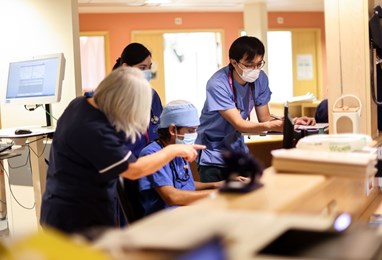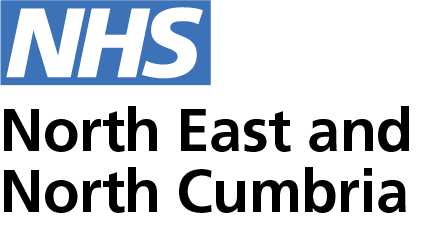Region's NHS ready for winter pressures

Careful planning, innovation and a focus on tackling bottlenecks across health and care will help the NHS to weather the challenging winter months – but we need the public’s help, say health leaders in the North East and North Cumbria.
Months of detailed planning across the whole range of health and care services will help to strengthen the system for the busiest time of the year, as well as improving patients' experience where possible.
The detailed NHS winter plan for the region identifies pinch points in the system, with the aim of reducing delays at three key areas – getting patients to the right place first time, speeding up ambulance handovers at hospitals and avoiding delays in the transfer of care of patients from hospital. A stronger focus on support for frail patients is also expected to help many patients avoid admission to hospital.
Dr Neil O'Brien, medical director at North East and North Cumbria Integrated Care Board, said: "Winter is always a busy time for us but detailed planning and building on past experiences makes a real difference. Last winter our region's urgent and emergency care services helped more than a million people, and despite this we were able to maintain good performance figures, with some being the best in the country. We’ve also made improvements in ambulance handover times and reduced the number of hospital admissions due to falls by more than 10%.
"This year we are planning to ensure even better coordination between services than ever, with a new system coordination centre in place at the Integrated Care Board using real-time data and intelligence to help us manage the anticipated high number of patients needing our help.
"The Clinical Assessment Service, through NHS 111, has been enhanced to make us more efficient by guiding telephone and online patients to the best possible care for their needs. We also have a new way of managing arrivals at busy emergency departments which will focus on seeing those people in most urgent need first. Instead of coming straight to the front desk, an experienced nurse or health professional will be there to direct people to the most appropriate service. A number of steps are also being put in place to ensure people in mental health crisis receive the right kind of clinical and community support from the right professional for their needs.
“I want to pass on my thanks to all those involved in helping prepare for this winter and for the unwavering dedication of so many NHS staff who work tirelessly every day to help keep our communities safe.”
Dr Sean Fenwick, co-chair of the NHS strategic urgent and emergency care board for the North East and North Cumbria said: "If we can get people to the right place first time, reduce hospital admissions by offering more support in the community, speed up ambulance handovers and manage the transfer of care of patients from hospital more smoothly, we can make a real impact on the workload of our teams and the experiences of patients.
“However, we also need the support of the public. Everyone can play a part, by getting your flu and Covid-19 jabs if you are eligible, seeking advice from community pharmacists for common or minor illnesses, and taking a moment to think about the best service for your needs if you need care by using NHS 111."
Other innovations being implemented include extra support for frail people, including urgent community response services and virtual wards to prevent falls where possible, and care for more people in the comfort of their own home. An increase in the number of general and acute beds hospital beds, and beds in community care settings, will also enhance care for patients.
